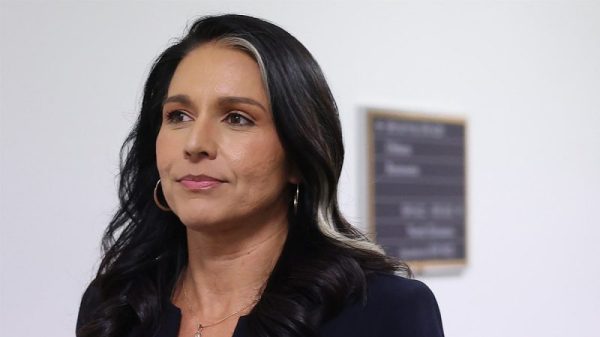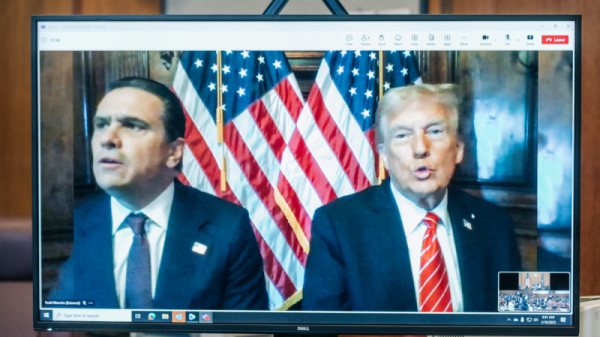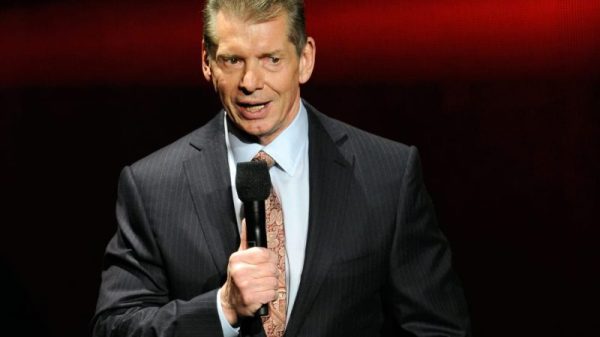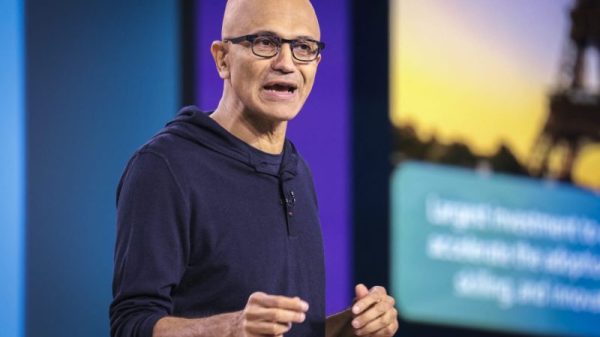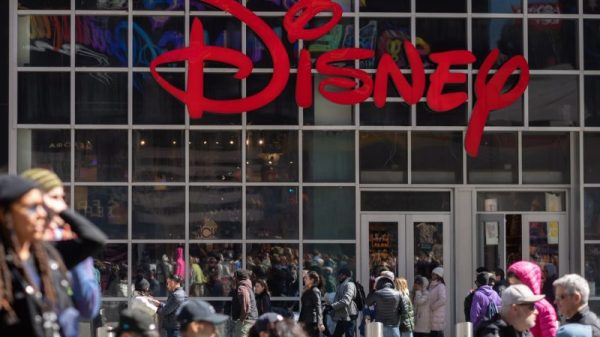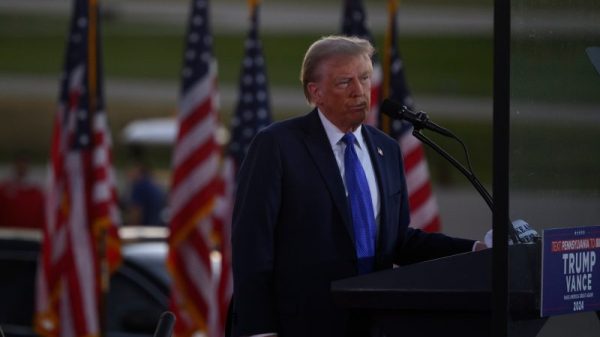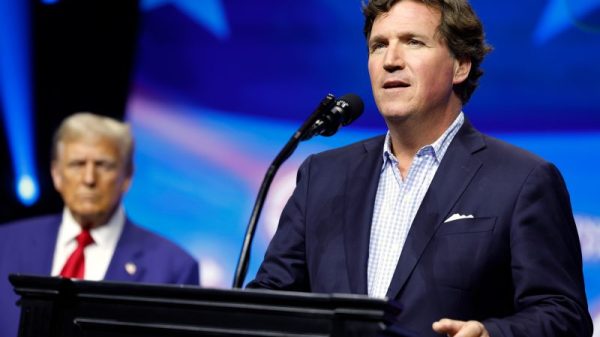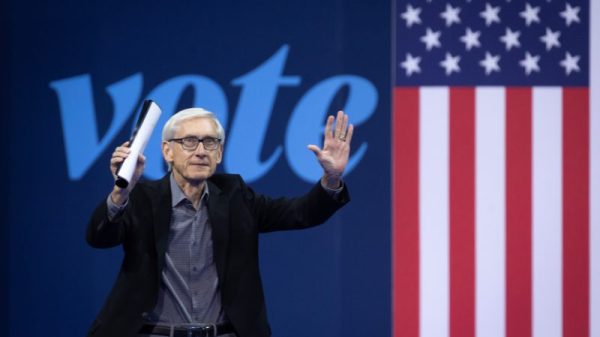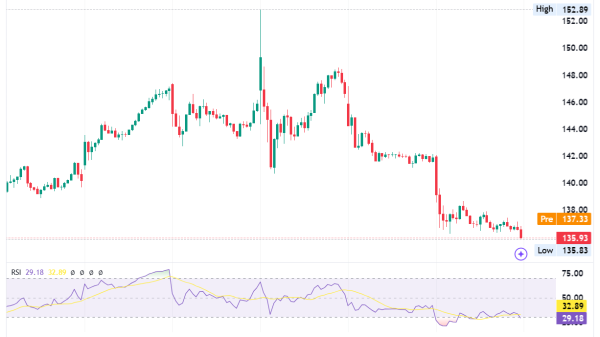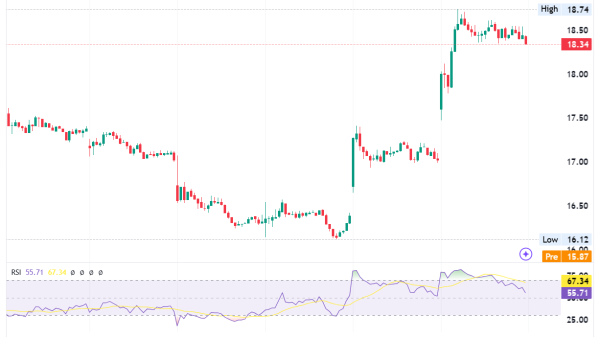Bad economic news so far has been mostly positive for the stock market, as investors worry over whether the Federal Reserve will start cutting interest rates.
There’s a danger, though, of overdoing it, where too much bad news could signal a significant downturn and even recession ahead.
That’s the dilemma the market finds itself in approaching a week of critical data, mostly focusing on the all-important U.S. labor market, which in turn provides signals about the health of the consumer.
“Bad news has been good news for equities over the past two months … but if growth deteriorates too much, bad news can turn into bad news,” Ohsung Kwon, equity and quant strategist at Bank of America, said in a client note Monday.
Kwon points out that during that period, the S&P 500 and U.S. dollar have diverged in almost perfect unison.
The dollar index has been on a steady though gradual decline, while the large-cap equity index has been on a similar steady though gradual rise. The trend has become particularly acute over the past month, which has seen the S&P 500 climb about 3%. The greenback often rises on bad news as investors seek the safety of cash and equivalents, while the stock market gains on good news.
At the same time, economic data has generally deteriorated, or at least not met Wall Street forecasts.
The Citi Economic Surprise Index, which measures actual data against consensus expectations, began sliding in mid-April, turning negative in late May while falling about 120%. The countercyclical measure indicates that expectations were outpacing reality.
For the most part, bad economic news likely could help convince the Fed that the time is right to start lowering interest rates. The one exception is higher inflation, which would push the Fed toward tighter monetary policy.
The central bank has held its benchmark borrowing rate in a range of 5.25%-5.5% since July 2023, the highest level in some 23 years. Fears about a more hawkish Fed on inflation have caused multiple bouts of volatility in the stock market.
That brings the market to this week’s run of data, which includes surveys on job openings and private job creation, concluding Friday with the Bureau of Labor Statistics’ nonfarm payrolls report. Economists surveyed by Dow Jones expect growth of 178,000 jobs for the month, which would be about in keeping with April’s 175,000, and likely hold the unemployment rate at 3.9%.
If the estimate is about correct, it would put job creation in the “Goldilocks range” of 125,000 to 175,000 of not too hot and not too cold, according to Bank of America experts.
However, anything below 125,000 could mean a reversal from the bad-news-is-good-news trend, in which a rising unemployment rate could trigger a yardstick known as the Sahm Rule, the bank said. Devised by economist Claudia Sahm at New Century Advisors, the rule holds that if the unemployment rate averaged over three months is half a percentage point higher than the 12-month low, the economy is in the early stages of recession.
As of May, the 12-month low would be 3.5%, meaning the jobless rate would have to hold a three-month average of 4% to meet the Sahm hurdle. Based on the prior two months, the unemployment rate would have to rise to 4.3% in May for that to happen.
However, Bank of America sees that as unlikely, expecting above-consensus job growth of 200,000.
“As long as inflation remains in check, stronger growth should also be positive for stocks,” Kwon wrote.
Still, BofA’s strategy team expects market volatility around the report and believes the market is underpricing the chance of a market move.
The firm recommends an options strategy known as a “straddle” as a way to capitalize on a potential market swing.
The move involves buying both puts and calls on S&P 500 options that expire on the same day and have the same strike price. It pays off when the index either rises or falls from the strike price by more than the premium paid. BofA said the trade finished in the money six of the previous eight weeks.



